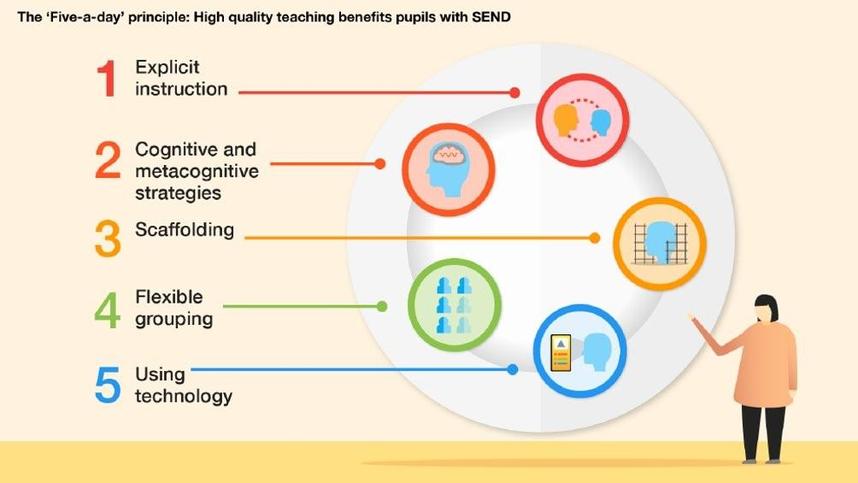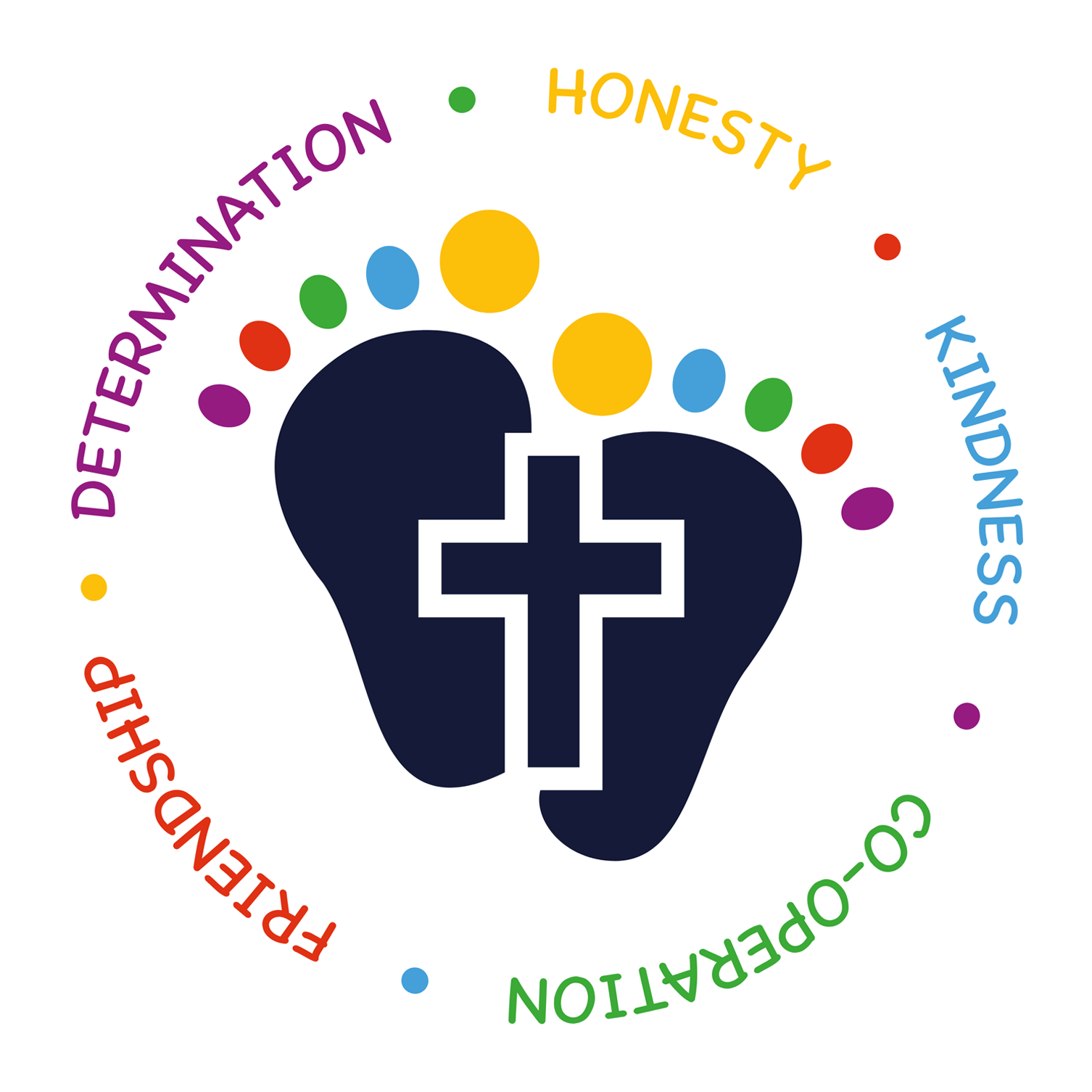SEND
Please click the link below to access Birmingham's Local Offer:
Here you will find help, advice and information about the services available for a child or young person from birth to 25 years with a Special Educational Need or Disability (SEND).

SENDCo Details:
Mrs Saira Parveen
St Barnabas CE Primary School
Spring Lane
Erdington
Birmingham
B24 9BY
Tel: 0121 464 5813
Email: enquiry.stb@fioretti.co.uk
The Special Education Needs and Disability Information, Advice and Support Service (SENDIASS) exists to provide advice and information to parents and pupils in Birmingham.
This information is designed to explain Special Educational Needs procedures, to help you understand the law and procedures that affect you and your child, and to provide information on other issues that may affect you.
Email: sendiass@birmingham.gov.uk
Telephone: 0121 303 5004
You can find all our SEND information on this page!
What types of special educational needs does our school make provision for?
In our school we comply with the Children and Families Act 2014 and Disability Regulations 2014. We make provision for pupils who have the needs highlighted below. We know that some pupils will have difficulties in more than one of these areas and we will always strive to meet their needs. The support outlined here acts as a guide but the actual support package will be based on the specific needs of each individual child.
As stated in the SEND Code of Practice, at Saint Barnabas we know that high quality teaching, differentiated for individual pupils, is the first step in responding to pupils who have or may have SEND. All teachers follow the recommendations from the Education Endowment Foundation and adopt the' 5-a-day' principle in their practice which has been proven to add maximum value for learners with SEND.

Cognition and Learning
|
Children and young people who find learning, thinking and understanding harder than most other people. |
||
|
Types of need and what that could look like Some things that children might find difficult are: |
Examples of support available in our school |
How we check it is working |
|
*Taking longer to learn important skills • Find it difficult to remember things like times tables and important words for reading. • Find it hard to understand how to use their letter sounds for reading and spelling. • Take longer to process information. |
*Teachers change what they are teaching or the way that they teach to help the child or young person learn more with the rest of the class. • Extra support can be given in a small group by an adult to help the child or young person learn the things they are finding difficult. • Extra support can be given to the child or young person by adult for a short time during the day to support them to learn new skills. • Individual assessments to help show what the child or young person needs help with. *Access to specialist support from a specialist/outside agency |
• Look at the targets set to see if the child or young person has achieved them. • Talk to adults who have worked with the child or young person. • Talk to the child or young person. • Talk to parents. • Use school tracking system to see how much the progress has been made. • Have meetings with other members of staff in school to talk about the child or young person’s progress. • Ask for other professionals to work with the child or young person to check the progress being made. *Pupil Progress meetings |
Communication and Interaction
|
Children and young people who find it difficult to interact with the people and the world around them. |
||
|
Types of need and what that could look like Some things that children might find difficult are:
|
Examples of support available in our school
|
How we check it is working |
|
• Talking to adults and or children and young people, especially when in a group. • Talking about a topic they haven’t chosen to talk about. • Making friends or keeping friends. • Following rules made by someone else. • Dealing with changes in the way they usually do things. • Dealing with noise, smells or other sensations around them. • Saying what they are thinking or feeling. • Understanding what other people mean when they are talking. *Find it difficult to express themselves. |
• Teachers change what they are teaching or the way that they teach to help the child or young person learn more with the rest of the class. • Use support programmes especially made to help the child or young person to build communication and interaction skills – for example, social use of language or sensory groups. • Use resources in the classroom to help the child or young person understand or deal with things that are happening – for example, visual timetables, task boards, social stories. • Get advice from professionals and specially trained staff in school to give advice. • Use good role models to support interaction. • Friendship circles and lunch time clubs to support during unstructured times, e.g. mindfulness colouring, lego therapy *Use Wellcomm speech and language assessment to set targets.
|
*Observations of the child or young person to see if they are communicating or interacting differently. • Look at targets set to see if the child or young person has achieved them. • Talk to adults who have worked with the child or young person. • Talk to the child or young person. • Talk to parents. • Use emotions cards and prompts |
Sensory and/or physical needs
|
Children and young people who have a disability that may make it difficult for them to manage their everyday life without change or support. This may be because of hearing or visual difficulties, physical difficulties or other medical needs. |
||
|
Types of need and what that could look like Some things that children might find difficult are: |
Examples of support available in our school |
How we check it is working |
|
• Hearing what others in the classroom or school setting are saying. • Reading words in books, worksheets or whiteboards that are not made bigger or changed to help them. • Moving around school. • Using resources or equipment • Taking medication without adult support. |
• Teachers change what they are teaching or the way that they teach to help the child or young person learn more with the rest of the class. • Professional advice from specialist support service. • Timetabled support for regular physiotherapy session if needed. • Support from outreach services such as hearing, visual impairment or physical disability teams. • Specialist equipment • Adaptations to the school environment where possible • Reasonable adjustments made to the curriculum/teaching
|
• Monitoring that the child or young person has full access to a broad and balanced curriculum. • Observations of the child or young person within the school environment. • Discussion with professionals regarding the management plan. • Talk to adults who have worked with the child or young person. • Talk to the child or young person. *Talk to parents. Liaise with specialist agencies. |
Social, emotional and mental health
|
Children and young people who find it difficult to manage their emotions and behaviour in a way that affects their daily life. |
||
|
Types of need and what that could look like Some things that children might find difficult are: |
Examples of support available in our school |
How we check it is working |
|
• Following rules set by others • Sitting still for very long. • Listening to and following instructions. • Understanding how they are feeling. • Making friends. • Dealing with their difficulties in a way that does not cause harm to themselves or others. • Taking responsibility for the things that they do.
|
• Reasonable adjustments made to the curriculum/teaching. • Get advice from professionals and specially trained staff in school. • Extra support can be given in a small group by an adult to help the child or young person learn about how to help themselves. • Extra support can be given to the child or young person by an adult for a short time during the day to let them talk about the things that have upset them. Individual targets to show what the child or young person needs help with. • Personalised social stories to support with appropriate behaviours and responses. • Access to a Pastoral Manager. • Get out of class pass where needed. |
• Observations of the child or young person to see if they are coping better in school. • Talk to adults who have worked with the child or young person. • Talk to the child or young person. • Talk to parents • Use of emotions cards and prompts. |

